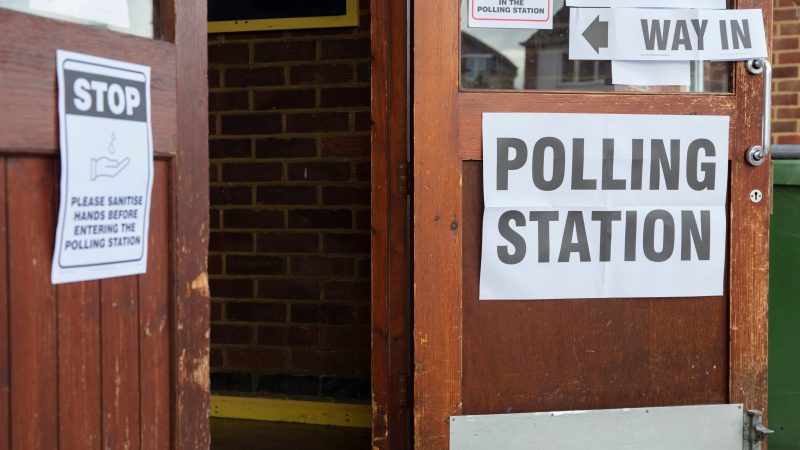
Today, International Workers’ Memorial Day, is a fitting moment to reflect on those who have lost their lives in the workplace. This year’s memorial is particularly poignant as we remember the workers who gave their lives to keep the rest of us safe during the pandemic. Millions were able to stay at home and shield from the virus because frontline workers kept the country going – from the health workers who saved lives and transport workers who kept buses and trains running, to the delivery drivers who ferried vital meals and parcels and hauliers who made sure there was food on the supermarket shelves. Millions put themselves in harm’s way to protect the rest of the nation. Despite it slipping down the news agenda, Covid is not over. There are still thousands of infections every week and we still need to be talking about how to best protect people in their place of work.
Away from Covid, the fight to keep people safe and healthy at work continues. Great strides have been made in the century and a half since workers started organising in this country but there is still far more that needs to be done. In 2020/21 alone, 142 people were killed in the workplace with 39 of those losing their lives in the construction industry. That means dozens of shattered families, and is far too high a number. Figures like this are why we need our trade unions more than ever. They are the central force in driving up standards and increasing workers’ rights.
Over the decades, trade unions have helped abolish child labour, dramatically improved workers’ conditions, guaranteed minimum holiday and sickness entitlements and reduced the number of hours in a working week. These gains were not inevitable. A 2013 study of 31 industrialised countries showed that “union density is the most important external determinant of workplace psychosocial safety climate, health and GDP”. Trade unions not only lead to a general improvement in conditions, but they also raise safety standards and save lives. In 2003, the health and safety executive ran a pilot where they sent union-appointed worker safety advisors to non-unionised organisations. The result was more than 75% of employers said they made changes due to the pilot.
Yet unions face unacceptable obstacles in their struggle to make workplaces safer and it is still taking far too long for governments to act on much-needed initiatives. USDAW had to campaign for two decades to secure legislative change in Holyrood and Westminster that would protect shop workers from abuse and threatening behaviour in their place of work. Despite the success of their Freedom From Fear campaign, shockingly, incidents during the pandemic became much worse with their survey finding they had doubled at the beginning of the first lockdown.
Even when trade unions do make advances, they then often have to watch as they are swept away or watered down by successive Conservative governments. The greatest gains for workers are made when Labour is in power and the unions’ voice is heard in No 10. The powerful legacy of these workplace reforms was highlighted by Lord Grocott when he observed in 2008 that the number of fatal injuries to employees fell by 73% and non-fatal injuries by 70% between 1974 and 2007 following the introduction of the Health and Safety at Work Act under Labour.
The problem is that Labour and other progressive parties are often locked out of power even when they command a greater combined share of the vote. This is due to our current winner-takes-all voting system that is increasingly giving the Tories an artificial advantage in general elections. It means the Conservatives can increasingly form majority governments on a minority share of the vote.
Just three years ago, Boris Johnson was handed an unassailable 80-seat Commons majority with just 43% of the vote. This system means that trade unions are routinely left without a seat at the table when it comes to government. And this is why more and more trade unionists now want to scrap the current regressive first-past-the-post (FPTP) system as they realise that it is the greatest blocker to improving the lives of workers across the country: last year, Unite ditched its support for FPTP and just this week the CWU also withdrew support for it.
Politics for the Many, the grassroots trade unionist campaign for political reform, argues that bringing in a proportional-representation (PR) voting system would level the playing field and lead to far more Labour MPs and Labour-led governments, who would then advance rather than restrict workers’ rights. For a vision of how the future could be, under the single-transferable-vote system (often considered the gold-standard for PR) Labour and left-of-centre parties would have won 317 seats compared to the Tories and other right-wing parties getting 315 in the 2019 general election – instead of handing Johnson a huge, unwarranted majority.
The simple fact is that FPTP is holding back the unions and the fight for workers’ rights. Today reminds us how high the stakes are in the struggle to make all workplaces safe and healthy environments. That is why we need a politics that respects workers and always gives them a seat at the table.




More from LabourList
Turning the page? Labour’s recovery in the polls show a path to 2029 victory
Restoration announce recommendations for NEC candidates
‘Factionalism at the top is weakening Labour – and handing a gift to Reform’